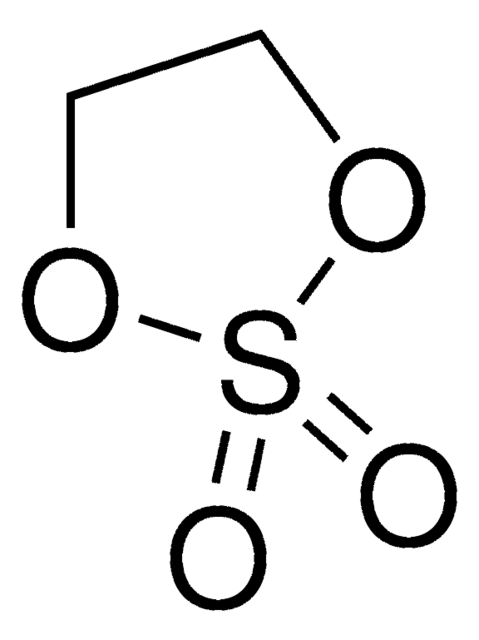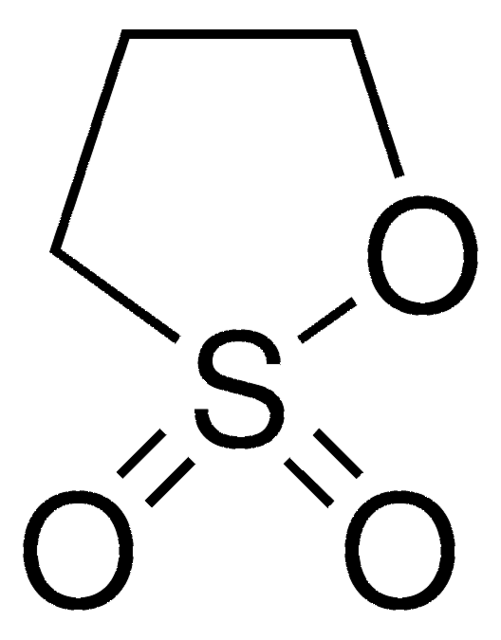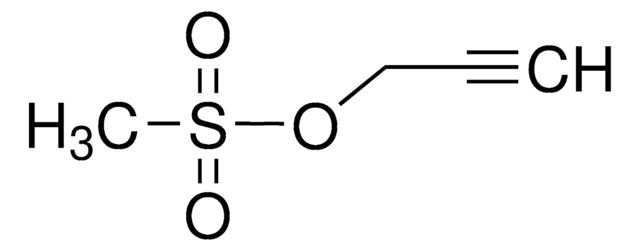901686
Fluoroethylene carbonate
battery grade, ≥99%, acid <200 ppm, anhydrous
Synonyme(s) :
4-Fluoro-1,3-dioxolan-2-one, FEC
About This Item
Produits recommandés
Qualité
anhydrous
battery grade
Pureté
≥99%
Forme
liquid
Impuretés
≤100 ppm H2O
≤200 ppm acid
Point d'ébullition
212 °C
Pf
18-23 °C
Densité
1.485 g/cm3
Application(s)
battery manufacturing
Chaîne SMILES
FC1COC(=O)O1
InChI
1S/C3H3FO3/c4-2-1-6-3(5)7-2/h2H,1H2
Clé InChI
SBLRHMKNNHXPHG-UHFFFAOYSA-N
Vous recherchez des produits similaires ? Visite Guide de comparaison des produits
Description générale
Application
Caractéristiques et avantages
✔ Improves Battery Safety
✔ Enhances Battery Performance
✔ Versatile Electrode Compatibility
Attention
- These electrolyte solutions have extremely low water content; please handle under inert and moisture free environment (glove box).
- Keep containers tightly closed. Keep away from heat and ignition sources. Store in a cool and dry place. Avoid storing together with oxidizers.
Informations légales
Produit(s) apparenté(s)
Mention d'avertissement
Warning
Mentions de danger
Conseils de prudence
Classification des risques
Acute Tox. 4 Oral - Eye Irrit. 2 - Skin Irrit. 2 - Skin Sens. 1
Code de la classe de stockage
10 - Combustible liquids
Classe de danger pour l'eau (WGK)
WGK 1
Point d'éclair (°F)
Not applicable
Point d'éclair (°C)
Not applicable
Faites votre choix parmi les versions les plus récentes :
Déjà en possession de ce produit ?
Retrouvez la documentation relative aux produits que vous avez récemment achetés dans la Bibliothèque de documents.
Les clients ont également consulté
Notre équipe de scientifiques dispose d'une expérience dans tous les secteurs de la recherche, notamment en sciences de la vie, science des matériaux, synthèse chimique, chromatographie, analyse et dans de nombreux autres domaines..
Contacter notre Service technique













